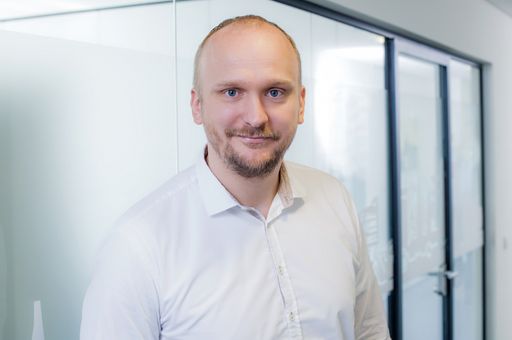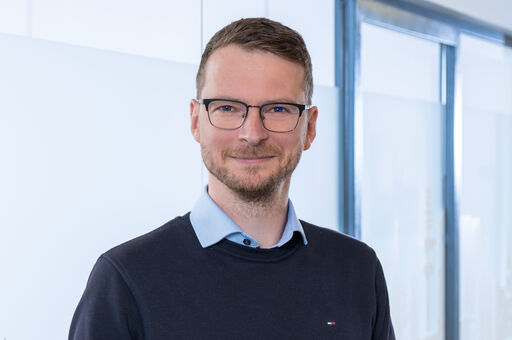On Thursday July, 2nd, 2015, the German Federal Parliament (Bundestag) passed the draft law submitted by the German Federal Government regarding the “Reorganisation of the right about the placing on the market, the return and the environmentally friendly waste disposal of electrical and electronic equipment” (ElektroG = German WEEE conversion) (18/4901) in the version which was slightly amended by the environmental committee (18/5412). The Electrical and Electronic Equipment Act (ElektroG) was approved by the German Federal Assembly (Bundesrat) on July 10th, 2015 and will come into force after the signature of the German Federal President. take-e-way reports with reference to information of the Foundation EAR about the most important changes for all concerned producers, manufacturers, importers and distributors:
Important changes in terms of the producer
The new Electrical and Electronic Equipment Act (ElektroG) brings changes regarding the definition of the producer. The simple “offering” of electrical and electronic devices already meets the requirements to be defined as a producer in the sense of the ElektroG. This includes, for instance, the advertising of product offers on websites or the printing of product catalogues. It is no longer required to place the devices on the market. This also applies for those who offer non-registered devices of foreign producers. The present definition of the producer will be omitted, according to the new Electrical and Electronic Equipment Act (ElektroG) for companies exporting electrical and electronic devices and delivering them directly to an end user in other EU countries. Legal regulations of the recipient country will be applicable, e.g. the obligation to order an authorised representative in the recipient country.
Introduction of the authorised representative
The new Electrical and Electronic Equipment Act (ElektroG) may imply far-reaching changes for manufactures without a branch office in Germany. They can no longer be or kept registered by themselves.
Any concerned already registered manufacturer without a branch office in Germany can establish a branch office in Germany or commission an authorised representative with a branch office in Germany and designate him to the Foundation EAR. This has to take place within 6 months after coming into force of the Electrical and Electronic Equipment Act (ElektroG). Otherwise, the Foundation EAR has to revoke granted registrations.
take-e-way provides the legally claimed authorised WEEE representative for companies without an own branch office in Germany with its new service “get-e-right” and helps in converting the registrations.
New definitions and categories for electrical and electronic devices
The definitions of electrical and electronic devices, as well as the distinction of B2C to B2B devices, mostly comply with those of the obsolete Electrical and Electronic Equipment Act (ElektroG). Electrical and electronic devices, which fall in one of the categories of the new Electrical and Electronic Equipment Act, are finally listed and come accordingly under the field of application. Until August 14th, 2018, the ten categories of the new Electrical and Electronic Equipment Act (ElektroG) should usually comply with those of the obsolete Electrical and Electronic Equipment Act. However, there will be an extension and a specification:
Night storage heaters are explicitly mentioned in the category 1 “Large Household Appliances”.
Photovoltaic modules are included in the field of application of category 4 “Consumer equipment and photovoltaic panels” at which the manufacturers of photovoltaic modules have to register until the beginning of the 4th calendar month after coming into force of the Electrical and Electronic Equipment Act (ElektroG) (transitional period). However, a registration can also be granted before expiry of the transitional period at the date when the new ElektroG is coming into force.
According to the new legal definition, luminaires with permanently fixed lamps (category 5 “Lighting equipment”) no longer count as lamp but as luminaire. Luminaires from private households are within the scope. Producers of luminaires for private households must be registered by the beginning of the 4th calendar month after the new ElektroG enters into force (transitional period). However, registration can be issued even before the transitional period ends to the date of entry into force.
Producers of B2C equipment belonging to category 5 "Lighting equipment", who are already registered, must check whether they – if appropriate – require another or further registration. To adapt registration to the new legal situation there is a transitional period of 2 years after the new Electrical and Electronic Equipment Act (ElektroG) enters into force. To make use of this transitional period it is necessary to report the need to change to Foundation EAR within 3 months after the new ElektroG enters into force. take-e-way will help all manufacturers in managing these demands.
Changes of the regulations for the guarantee certificate
The regulations for the guarantee certificate basically change in the new Electrical and Electronic Equipment Act (ElektroG). The necessity and the possibility to determine a trustee is being omitted. The end of the year (Dec. 31st) is the end of each period of time corresponding to the guarantee validity period. Only certain guarantee types are permitted. The Foundation EAR has to be the beneficiary of the guarantee.
Producers who require a B2C registration or their annual guarantee update needs to be applied, have to present the guarantee certificates, which comply with the new legal requirements. The same applies if the guarantee certificates for the past are missing or are insufficient. Already proven guarantees for the period of time corresponding to the guarantee validity period until including 31.12.2015 may remain unchanged.
Changes for individual guarantees
Producers with individual guarantee certificates have to adjust to considerable changes: A trustee is no longer required. Account solutions can no longer be used; the option of depositing money at legal courts will take place. Guarantee bond and securities remain admissible in the future, but the contents need to be reviewed. This means for the future that other guarantee documents are required (the period of time corresponding to the guarantee validity period 2016).
take-e-way offers its own approved guarantee systems as well as the complete conversion to the new requirements.
New fees for the new Electrical and Electronic Equipment Act (ElektroG)
The new Electrical and Electronic Equipment Act (ElektroG) leads already to the changes in the field of charging fees: Simultaneously with the Electrical and Electronic Equipment Act (ElektroG) the Federal Ministry for the Environment, Nature Conservation, Building and Nuclear Safety will also issue a new regulation on fees.
Therefore, new fee elements are going to be introduced. For example, to appoint an authorised representative or to ascertain the qualification of manufacturer guarantee systems.
The fee rates need to be adapted.
take-e-way will offer help to all concerned producers
take-e-way will offer help to all concerned producers, manufacturers, importers and distributors to fulfil the requirements of the new Electrical and Electronic Equipment Act (ElektroG) in time and will be available weekdays from 8:00 a.m. till 6:00 p.m. (CET) via +49/40/750687-111 or via email: service(at)take-e-way.com and will offer free of charge advice to any questions.
About take-e-way
- Founded in 2004 in Hamburg/Germany
- Currently 34 employees
- Managers: Jochen Stepp, Oliver Friedrichs
Business fields: The take-e-way GmbH assumes the implementation of bureaucratic and operative requirements and obligations of manufacturers, importers, wholesalers, retailers and distributors of electrical and electronic devices in Germany and abroad in the field of product responsibility according to the law (Electrical and Electronic Equipment Act, WEEE, Battery Act, Packaging Ordinance, etc.).
VERE e.V.: The VERE Association for the take-back and recycling of waste electrical and electronic equipment (VERE e.V. registered association) founded in 2003 is the organization having the largest number of members among providers, manufacturers, trade associations and individuals regarding the implementation of the Electrical and Electronic Equipment Act (ElektroG/WEEE) in Germany. VERE is the founding organization of take-e-way and also represents the interests of more than 3,300 companies at political level.
Press Contact
take-e-way GmbH
Christoph Brellinger
Corporate Communications
Liebigstraße 64
22113 Hamburg
Germany
Phone: +49 (0)40/750687-111
Fax: +49 (0)40/750687-101
http://www.take-e-way.com
presse[at]take-e-way.de

